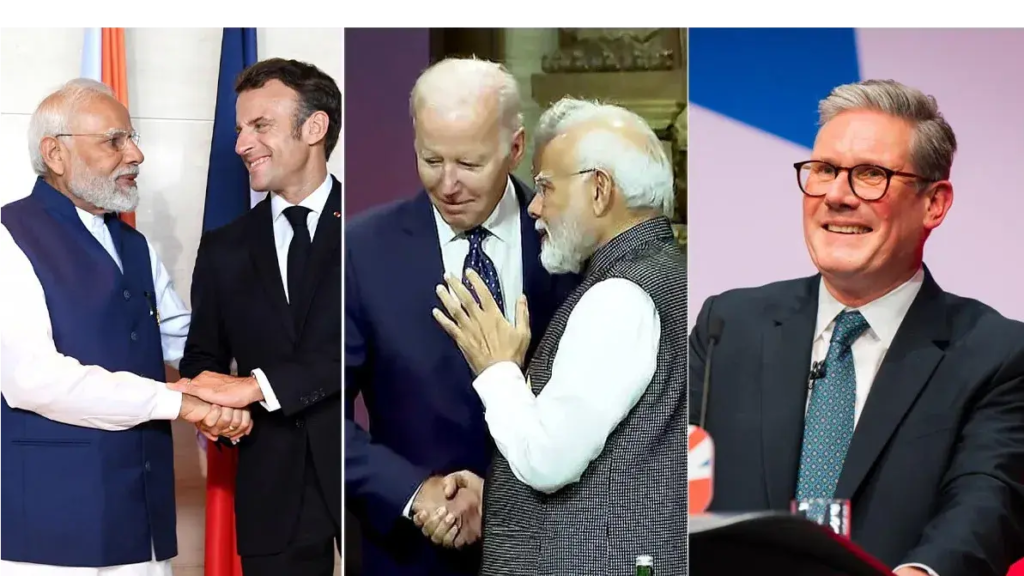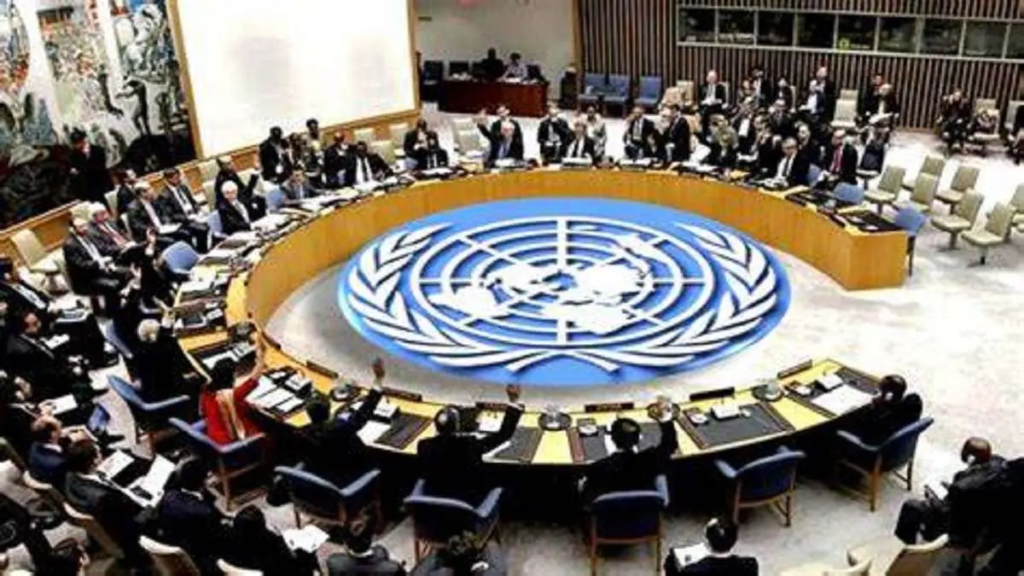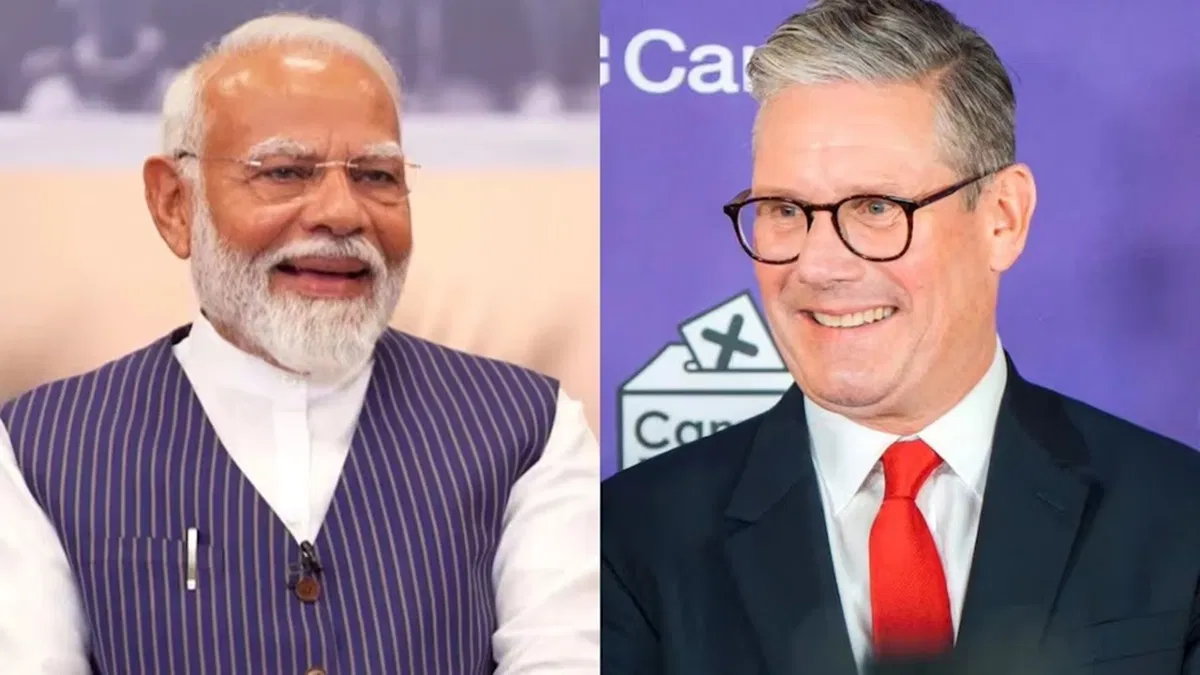India’s bid for a permanent UNSC seat has gained significant momentum over the past few years. With the backing of major global powers like the United States and France, the international community is witnessing a growing consensus about the need to reform the United Nations Security Council (UNSC).
Recently, British Prime Minister Keir Starmer joined this chorus, offering his support for India’s bid for permanent UNSC seat during his speech at the UN General Assembly on September 26.
The United Nations Security Council currently has five permanent members: the United States, China, France, Russia, and the United Kingdom. For decades, many have criticized the UNSC for not being representative of the modern global order.
Read : Israel Hiring Indian Workers with Lucrative Salaries and Bonuses
Developing nations, including India, have long argued that the structure of the council, created in the aftermath of World War II, no longer reflects the realities of the 21st century. Hence, India’s bid for permanent UNSC seat is not just a matter of national prestige but also one of global fairness and justice.
Growing Support for India’s Permanent UNSC Seat
The push for India’s bid for permanent UNSC seat has found strong advocates among global powers. French President Emmanuel Macron, in his address at the UN General Assembly, reiterated his country’s long-standing support for the expansion of the UNSC to include nations like India.
Read : India to Grow at 6.7%, Remain Fastest Growing Economy in the World: World Bank
According to Macron, it is essential to make the UN more effective and more representative by adding countries such as Germany, Brazil, Japan, and India as permanent members. This endorsement is a critical boost for India’s bid for permanent UNSC seat, as France is one of the five permanent members of the Security Council and a prominent voice in global affairs.
Likewise, the United States has also publicly backed India’s bid for permanent UNSC seat. U.S. President Joe Biden, during his recent UN address, highlighted the need for a more inclusive and effective UNSC.
He emphasized that India, along with other major nations, should be given a permanent seat to better reflect the changing global landscape. Biden’s support adds significant weight to India’s campaign, considering the influence of the U.S. in global diplomacy and international organizations.

With the backing of both France and the U.S., India’s position as a contender for a permanent UNSC seat has been strengthened. However, British Prime Minister Keir Starmer’s recent endorsement marks another important step forward in this process.
Starmer, during his speech, pointed out the need for reform within the UNSC, stating that the council needs to become a more representative body and avoid being paralyzed by internal politics. His call for including nations like India, Brazil, Japan, and Germany as permanent members reinforces the growing consensus for expansion and reform.
The Road Ahead for India
Despite the increasing international support for India’s bid for permanent UNSC seat, the path to achieving this goal is still filled with challenges.
One of the major hurdles is the opposition from certain permanent members, particularly China, which has historically been against any expansion that includes India. China’s geopolitical tensions with India, including border disputes and competition for influence in the region, have complicated New Delhi’s aspirations.
Nonetheless, India’s bid for permanent UNSC seat is driven by more than just geopolitical competition. India argues that it deserves a seat because of its growing economic power, its commitment to global peace and security, and its role as a representative of the developing world.
India has been one of the largest contributors to UN peacekeeping missions and has consistently advocated for global cooperation on issues such as climate change, terrorism, and sustainable development.

Additionally, India’s bid for permanent UNSC seat is part of its broader strategy to play a more significant role on the global stage. The country’s growing economic influence, population size, and diplomatic outreach have made it an indispensable player in international affairs.
As the world’s most populous democracy, India is seen as a key voice for the interests of the Global South, making its inclusion in the UNSC a natural progression in the council’s evolution.
The Importance of UNSC Reform
The debate surrounding India’s bid for permanent UNSC seat is intertwined with the broader issue of UNSC reform. Many experts argue that the current structure of the UNSC is outdated and does not reflect the realities of the 21st century.
The five permanent members, known as the P5, hold disproportionate power due to their ability to veto resolutions, which has often led to gridlock and inaction, especially on critical issues like Syria, Ukraine, and the Israeli-Palestinian conflict.
Countries supporting India’s bid for permanent UNSC seat, such as France, the U.S., and the UK, believe that expanding the council would make it more democratic and responsive to global crises.

Including countries like India, which have significant regional and global influence, would help the UNSC become a more balanced and representative institution. As British Prime Minister Starmer noted, the council must be willing to act, rather than being paralyzed by politics, if it is to remain relevant in today’s world.
Moreover, the inclusion of permanent seats for countries from Africa, Asia, and Latin America is seen as essential to giving a voice to regions that have historically been underrepresented in global governance.
India’s bid for permanent UNSC seat is part of a larger push for a more inclusive UN, one that acknowledges the shifting dynamics of global power and gives emerging nations the opportunity to shape international policies.
As support continues to grow for India’s bid for permanent UNSC seat, the conversation about reforming the UNSC becomes more urgent. With the backing of influential nations such as France, the United States, and now the United Kingdom, India is inching closer to realizing its long-standing goal of becoming a permanent member of the Security Council.
However, obstacles remain, particularly from nations that oppose the expansion of the council or have their own strategic reasons for resisting India’s inclusion.
Nevertheless, India’s sustained diplomatic efforts and its role as a key player on the global stage make it a strong candidate for permanent membership.
As the world continues to evolve, the need for a more representative and effective UNSC becomes more apparent, and India’s bid for permanent UNSC seat symbolizes the broader push for a more inclusive global order.

